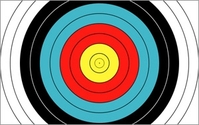
In
announcing Facebook’s $19 billion acquisition of WhatsApp Wednesday, CEO Mark Zuckerberg assured that the messaging app with 450 million users would remain ad-free. By contrast, the social
networking giant on Thursday unveiled deeper targeting options to bolster its burgeoning ad business that made the WhatsApp purchase
possible.
The expanded options being rolled out to all Facebook advertisers through the self-serve and Power Editor tools in the coming weeks span the four main types of targeting: location,
demographic, interests and behaviors.
When it comes to location, marketers will now be able to build campaigns around any combination of geographies such as country and city (France and
London), country and state (New York and Canada), state and city (California and Las Vegas), and state and ZIP code (U.S. only). That would allow a retailer, for instance, to show ads to people who
live near brick-and-mortar locations.
advertisement
advertisement
In terms of demographics, new choices beyond education level, workplace and job title include reaching just those who have updated their relationship
status, such as in a domestic partnership or a civil union. In addition, advertisers can target people who have become engaged or were married in the past year, or the last three or six months.
To simplify targeting by interests, Facebook said that instead of choosing from multiple categories and keywords, marketers can just select one segment from a redefined set of interest-based
choices. For example, “if you want to reach baseball fans, just choose "baseball" as your targeting segments -- it'll pull in all the people that have liked or expressed interest in
baseball-related topics on Facebook,” stated a post on the Facebook for Business blog.
By incorporating its Partner Categories tool into the Core Audiences feature, Facebook will allow marketers to
target based on people’s offline and online activities and purchases, as well as the device used. The company introduced Partner Categories last year in conjunction with third-party data
providers, like Acxiom, Datalogix and Epsilon.
Furthermore, Partner Categories, which was previously only available in the Power Editor for managing larger campaigns, will be added to the
(self-serve) Ads Create tool for U.S. users.
Hussein Fazal, CEO of Facebook ad partner, AdParlor, said many of the targeting capabilities announced today have already been available through
tools like the Power Editor and Facebook’s Ads API. “But rolling them out to the self-serve tool and globally should help the large SMB advertiser base,” he said.
The small
and-medium-sized business community is onethat Facebook has cultivated more intensely over the last few years as it seeks to turn more of the 20 million small and local businesses with a presence on
Facebook into paying advertisers.